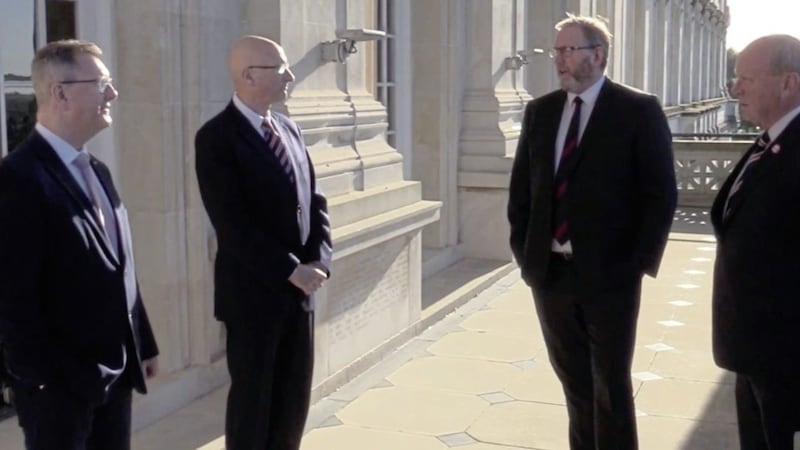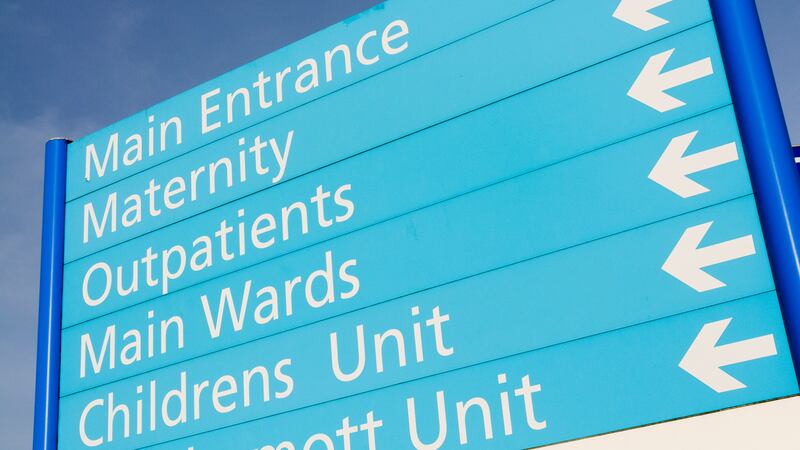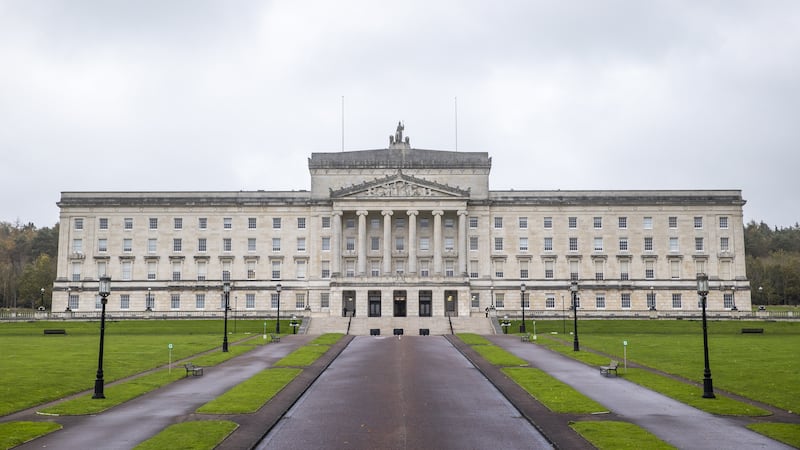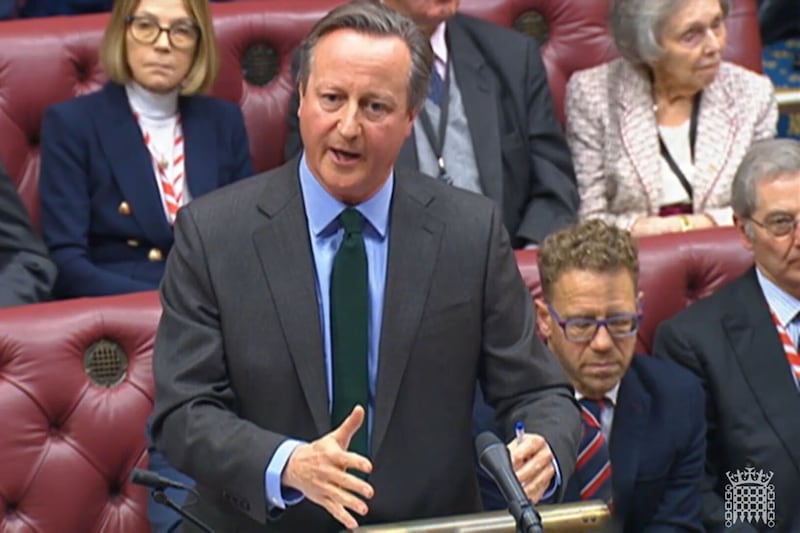AS far as Sir Jeffrey Donaldson’s professed desire for unionist unity goes, yesterday’s joint declaration and accompanying video may well turn out to be a high point.
The declaration signed by the DUP leader, alongside his counterparts from the Ulster Unionists, TUV and Progressive Unionist Party, emerged at the dawning of Ulster Day, a date designated to commemorate the signing of the Ulster Covenant 109 years ago.
Back then, half-a-million put their signature to the glorified petition – some signing with their own blood – in protest against the British government’s Third Home Rule bill. Ian Paisley claimed similar numbers gathered outside Belfast City Hall in 1985 to voice opposition to the Anglo-Irish Agreement. Over the summer, the handful of anti-protocol protests were lucky if they could muster 500.
There's angst within unionism presently and some of it stems from the protocol. Yet there’s also a great deal of confusion and desolation.
Those at the vanguard of the anti-protocol protests have sought to lay blame for their ills at the feet of Simon Coveney, Maros Sefcovic, Leo Varadkar, Joe Biden and Michel Barnier.
Conspicuously absent from the gallery of culpable statesmen, however, is British Prime Minister Boris Johnson, the joint signatory to the agreement that paved the way for the north’s bespoke post-Brexit trading arrangements. A "fantastic moment" was how the Tory leader described it as he put pen to paper in January last year.
A generous reading of the situation would suggest Boris’s judgment was clouded by his desire to get Brexit done and that he didn’t quite realise what he was agreeing to. History is likely to record it more accurately as a British government dominated by English Tories demonstrating self-serving expedience and paying little heed to what the consequences were for Northern Ireland and the precious union.
The very same politicians are now the ones joining unionists in criticising the EU for its inflexibility in implementing the agreement ratified by Westminster. Some on this side of the Irish Sea border rather naively regard this as their allies’ belated realisation that the British government were outmanoeuvred by the pernicious EU. Regrettably for Sir Jeffrey et al, it is merely a diversionary tactic whereby the Brussels bogeyman is invoked to take the focus off the mess that Brexit is creating in an increasingly broken Britain.
The options for the DUP leader and other ardent opponents of protocol are clearly limited. They’ve been saying the same thing for months and achieving the same unsatisfactory outcomes, recently settling on the nuclear option to collapse Stormont – a tactic that could quite easily backfire.
Meanwhile, there are questions over the wisdom of Doug Beattie’s involvement in the Ulster Day stunt. In recent weeks the UUP leader has been using the language of compromise and pragmatism, a vocabulary that doesn’t easily trip off unionist tongues. He has sought to put clear blue water between his party and the DUP on the protocol but yesterday undid much of that constructive work by throwing his hat in with Sir Jeffrey, alongside the naysaying Jim Allister and the politically irrelevant Billy Hutchinson – the latter a pair of unlikely bedfellows.
The TUV leader’s association with the one-time UVF killer is worth noting because he has long complained of “terrorists in government” and only last week sought to introduce legislation that would’ve barred his PUP opposite number from holding a position on the Policing Board or Education Authority.
Displays of unionist unity like what we saw yesterday are rare and haven’t been seen at this level since the ill-fated ‘graduated response’ of 2014, a Peter Robinson-led initiative that typically sought to quell unease by buying time. Unionism was never a monolith and is now arguably more fractured than ever, thanks to Brexit and countless DUP missteps.
Sir Jeffrey Donaldson is seeking to erase past failings and reverse his party’s ailing fortunes through co-operation with other unionist parties. While this approach is unlikely to fatally harm the TUV, the Ulster Unionists’ co-option may draw the party into political cul-de-sac, where Doug Beattie’s new brand of unionism could end up neutered or completely discredited. But perhaps that’s the DUP plan?








